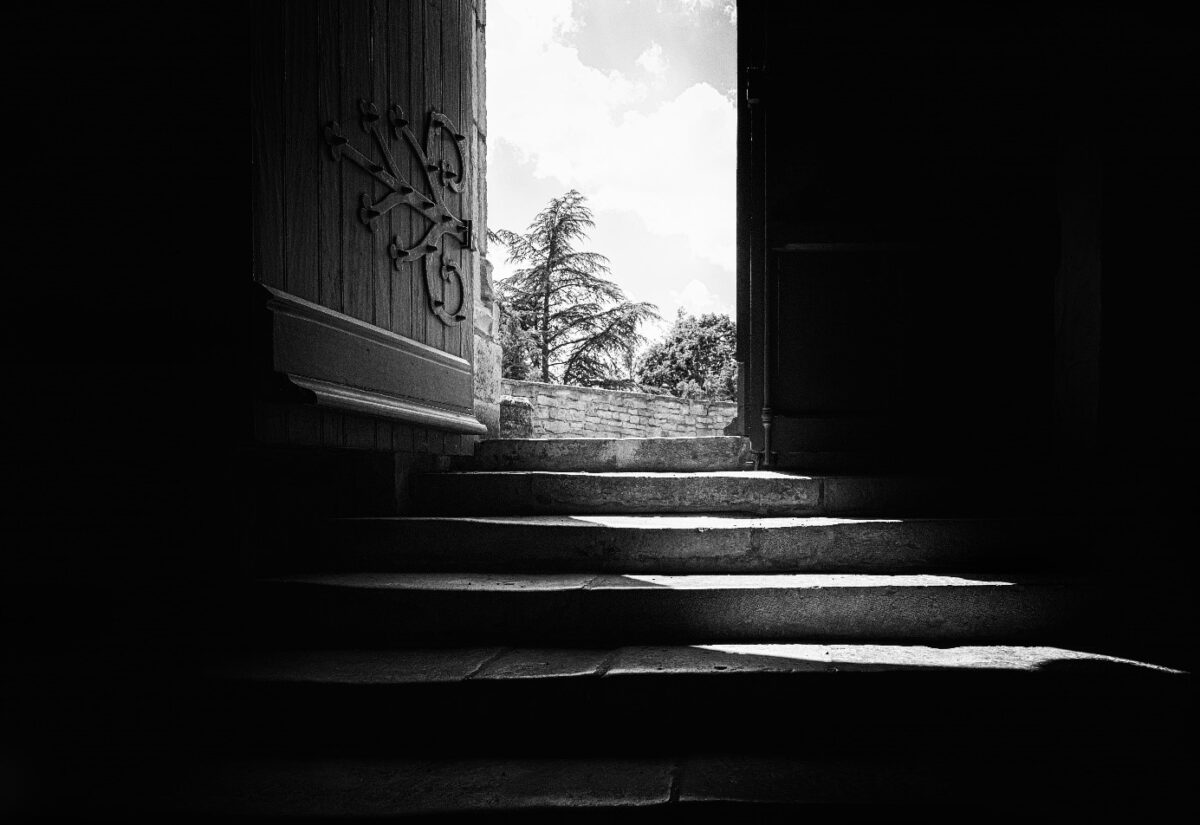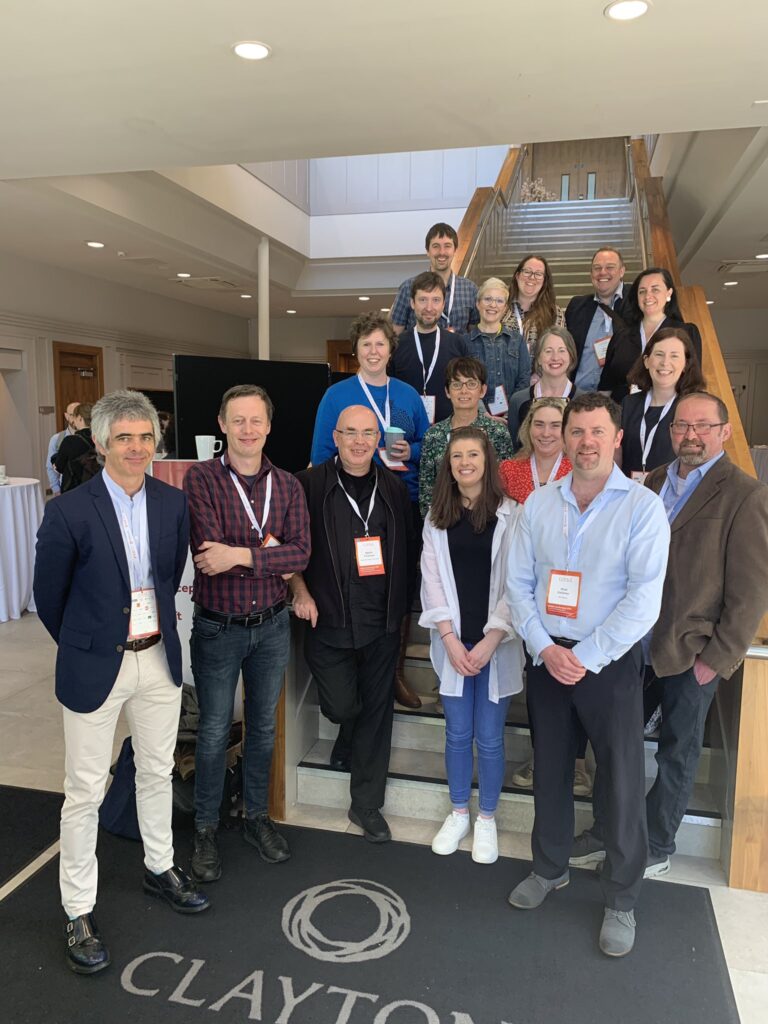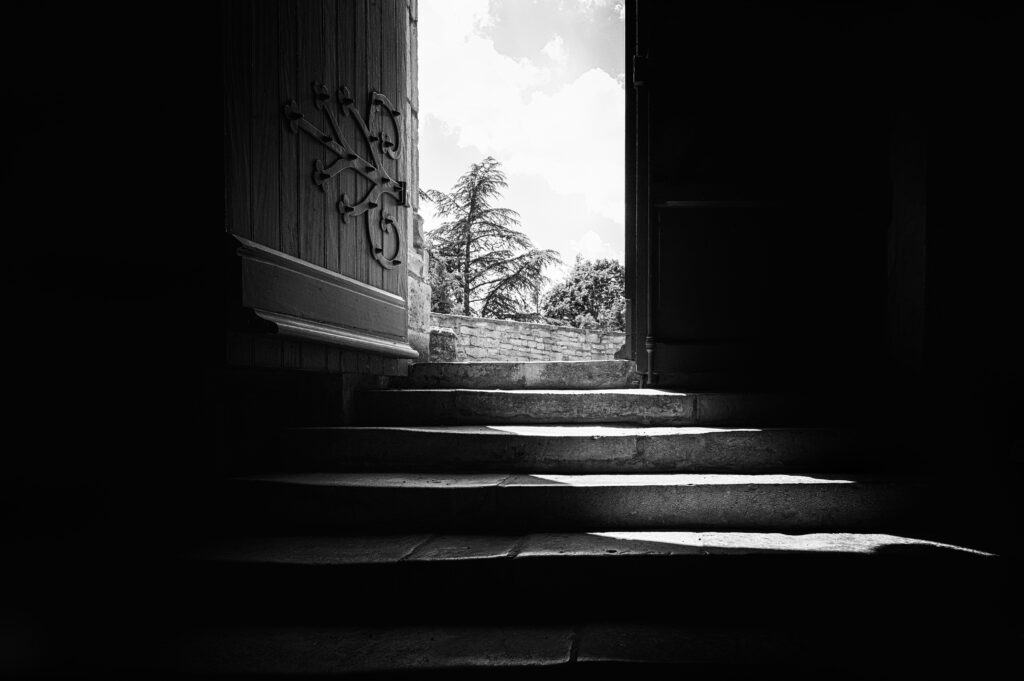Vanishing publications: we hear from the experts working on the preservation of online scholarship (part three)
- Deborah Thorpe
- November 2, 2023

In this third part of this series on digital preservation of online scholarship, I speak with Dr James O’Sullivan, UCC Lecturer in the Department of Digital Humanities, about this issue in relation to a specialist area of his: digital scholarly editions. James is Co-PI of the C-21 Editions project, which seeks to investigate and advance the practices of scholarly digital editing:
By Dr Deborah Thorpe, Research Data Steward, UCC Library
Deborah Thorpe: When you step into a library, you might see shelf upon shelf of scholarly editions, some of them dating back to the nineteenth century. This work of creating and publishing editions is becoming an increasingly digital endeavour. What have you found in terms of the long term availability of born digital editions, for future generations to use in teaching and research?
James O’Sullivan: So, when I speak about ‘born-digital’ editions, I’m referring to critical editions of born-digital materials, things like digital fiction, video games, and social media. And when I say ‘critical’, I mean in the interpretive sense (I know that ‘critical’ is a loaded term in textual scholarship). These digital materials are essential to our understanding of contemporary culture, and their importance will only increase. For example, you can imagine that future literary scholars will want access to an author’s social media posts, and that access should come with all that we expect from a scholarly edition; explanatory materials that aid understanding and interpretation, some sense of authority for the resource. Right now there aren’t a lot of editions that treat born-digital materials, as most projects are still focused on bringing print to the screen.
There are a lot of archival projects looking to preserve born-digital materials, but while editions can serve as archives, most archives aren’t editions. So it’s hard to assess availability right now, though my concern for those few projects that do exist is that they are often very platform-dependent, built on top of publishing systems which might be defunct in ten or twenty years. I’ve already accepted that we will lose so much of our digital culture, much of it has already been lost, but it’s almost more disappointing that we’ll also lose projects that were intended as acts of recovery.

Making digital editions ‘preservable by design’
DT: I have heard that you and the project team have been working on making digital editions ‘preservable by design’? What does that entail?
JO’S: I think preservation comes down to a very simple ideal: platform-agnostic, minimal computing. Basically, the fundamental elements of your edition should be based on lightweight, open technologies, and use no more tech than is actually needed. An example of such a technology would be TEI-compliant XML encoding, which basically allows for editions to be built up as a set of XML documents, which are easy to store, share, and preserve, and if necessary in the future, transform to whatever format or schema comes next. While I appreciate that the creation or encoding of editions and the publishing process are different things, and that the latter may require the use of specific publishing platforms and tools, sometimes even proprietary solutions, if the essential work of the editor has been done using simple, plaintext tech, then that work will persist, even if the frontend bells and whistles decay over time.
With the C21 Editions project, we’ve developed a TEI-compliant encoding schema for born-digital materials, specifically, social media, so that however someone might choose to publish an edition, the underlying editorial work is at least preservable. Of course, I appreciate that publishing is really important, because editions need an audience, but again, I think the best approach to publishing is through using lightweight, open technologies, such as jQuery, rather than bloated tools and platforms. I despair when I see people using platforms like WordPress for this kind of work, because, for the most part, they are pouring their intellectual labour into what amounts to the web equivalent of a tomb. Such tools have a place, but it isn’t here.
The future of scholarly editing, preservation and access
DT: What is the future of digital scholarly editing? How do you think repositories, data stewards, librarians, and other professionals who support and work with researchers can contribute?
JO’S: Well, I think first and foremost, a more comprehensive response to this question can be found in one of the datasets we created through C21, wherein we asked this question of various stakeholders from the field. One of the key learnings from that process is that everyone is aware of the challenges, but that the solutions aren’t so obvious. We’re only now, in the last decade or two, coming to some consensus on how best to create and publish digital editions of print materials, and all the while there was all this other, born-digital stuff that has been growing in importance. And the digital, unlike print, is much more difficult to edit in a procedural sense, because different forms of digital content have completely different editorial and technical requirements.
But the future of digital scholarly editing is one in which born-digital materials will be central, because cultural expression, in all its forms, is increasingly born-digital. And of course, while it may seem obvious, a major barrier to advancing the field is a lack of money.
While many experts and policymakers know what must be done, finding the resources to implement their vision is a whole other matter. While those people in positions of authority usually acknowledge that cultural preservation and access are important, very few possess the will or means to fund such.
DT: Thank you, James, and also a big thank you to Alicia, Rebekka, and Miranda for their insightful responses to my questions.
UCC Library and the digital preservation of scholarly content
To close out this blog, we turn to our very own Paul Davidson, Digital Learning Developer at UCC Library to explain the practical steps UCC Library took when the team, together with IT Services, stepped in to stop important journals from disappearing:
‘UCC has hosted journals across various research areas for many years. These are an important research output and add significantly to UCC’s research standings.
As many of these began when the software for handling such journals was in its infancy, a lot of the papers were published using bespoke applications and were spread across a multitude of URLs and, hence, various servers. Time took its toll on these journals and unfortunately some became defunct, making the risk of losing them higher year on year.
A project was developed between the Library and Digital Systems in IT Services during COVID-19 lockdowns to centralise all these journals using a single managed server, adding DOI’s via the CORA repository and a single open source software for their management. Hence in 2019 journals.ucc.ie was born. This enables UCC to publish an unlimited amount of journals on a supported platform, and with the use of CORA to ensure preservation.’

Our UCC Library team aims to proactively support and inspire staff and students in the areas of open access publishing; the preservation of scholarly content; and in managing and preserving research data. Some of the work that we have done in the area of digital preservation, in the past – as Paul shows above – has been responsive to the potential to lose scholarly content. However, we recognise the need to be proactive.
We would like to encourage researchers to join with library staff as partners to plan for the long-term preservation of all scholarly content, including your own articles and new online journals, as early as possible.

If you would like advice with the sharing and preservation of your publications, or open access publishing in general, you can email the Library’s Cork Open Research Archive (CORA) Team.
For support and guidance with Research Data Management and research data sharing, Dr Aoife Coffey and myself in the Research Data Service are happy to help.
By Dr Deborah Thorpe, Research Data Steward, UCC Library

